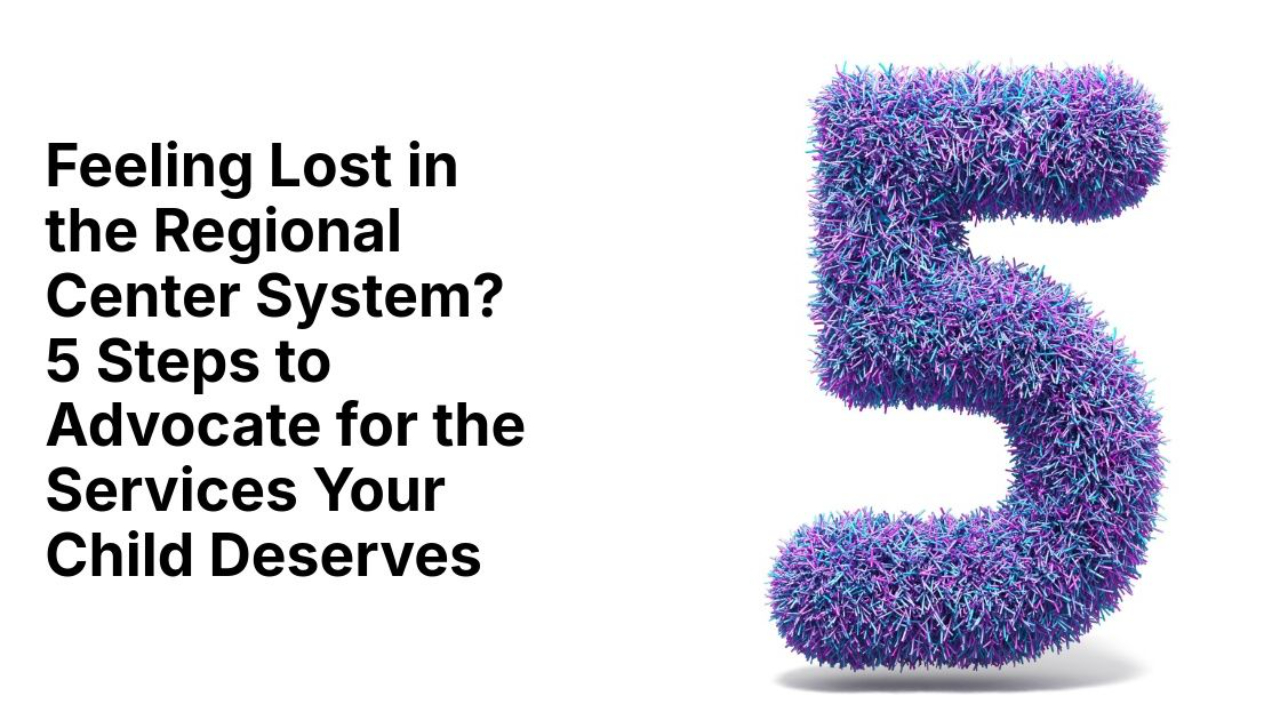Feeling Lost in the Regional Center System? 5 Steps to Advocate for the Services Your Child Deserves

If you’re a parent or caregiver in California and you’re feeling lost in the maze of the Regional Center system—you’re not alone. I can help you navigate the map. Many families feel overwhelmed by the forms, meetings, acronyms, and waitlists. You just want what’s best for your child. But sometimes, it feels like the system was built to confuse you rather than help you.
Take a deep breath. You can advocate for the services your child deserves—and you don’t have to do it alone. Here are five clear, practical steps to help you feel more confident and take action today.
1. Know Your Rights (Yes, You Have Them!)
California’s Lanterman Act guarantees people with developmental disabilities the right to services and supports to live full, included lives. That means your child has a legal right to what they need to thrive—whether that’s early intervention, respite care, social skills groups, or help with transitioning to adulthood.
Tip: Download the Lanterman Act or ask your Regional Center for a plain language summary of your rights. It’s okay to bring it to meetings and say, “I believe my child qualifies for this support under the Lanterman Act.”
2. Get Clear on What Your Child Needs and Wants
It’s easy to feel pressured to accept whatever is offered. But Person-Centered Planning starts with what your child needs—not just what the system has available.
Start by asking:
-
What brings my child joy?
-
Where are they struggling?
-
What would help them feel safe, included, or more independent?
Write down your observations. These personal insights are powerful tools when advocating.
3. Build a Relationship with Your Service Coordinator
Your Service Coordinator is your main point of contact—and while they may have a big caseload, it helps to build a respectful, collaborative relationship.
Communicate clearly and consistently. Email is great for keeping a paper trail. Try something like:
“Hi [Name], I’d like to request a planning meeting to discuss [your child’s name]’s current needs. I believe they may be eligible for additional supports under the Lanterman Act, including [list services]. Please let me know next steps.”
You don’t need to know all the “right” words—just speak from the heart and reference your child’s rights.
4. Request an IPP Meeting When You Need One
The Individual Program Plan (IPP) is the heart of your child’s Regional Center services. You don’t have to wait for the annual meeting—you can request one anytime your child’s needs change.
Examples:
-
A new diagnosis
-
A transition (starting school, entering adulthood)
-
Increased behavioral or emotional challenges
-
Your family needs more support at home
Put your request in writing and be specific about your concerns.
5. Bring an Advocate or Support Person
You don’t have to go it alone. Whether it’s a family member, friend, parent mentor, or professional advocate—you have the right to bring someone to any meeting. It helps to have someone who can take notes, ask questions, or just support you emotionally.
You can also connect with:
-
Family Resource Centers
-
Disability Rights California
-
Parent support groups or Facebook communities
Advocating can feel intimidating—but when you prepare and have support, you gain confidence and clarity.
You Are Not Asking for a Favor—You’re Claiming a Right
It’s important to remember: You are not a burden. You are your child’s best advocate. The system may be complicated, but your child’s voice, culture, dreams, and needs deserve to be at the center of every conversation.
Let’s Take the Next Step Together
If you’re feeling unsure where to start or need support preparing for your next Regional Center meeting, I’m here to help. Book a free consultation to talk through your questions and explore what’s possible for your child’s future.
You don’t have to navigate this alone—you have the right to be informed, heard, and respected.
Book a Free Advocacy & Planning Call
If you’re curious about how we can help your loved one, let’s talk! In this free 30-minute call, we’ll:
💬 Talk about your loved one’s passions and strengths
💬 Explore possible ideas
💬 Identify first steps to turning a dream into reality

